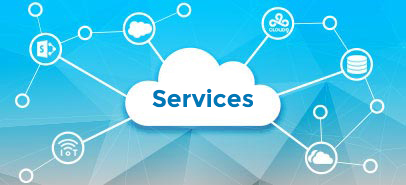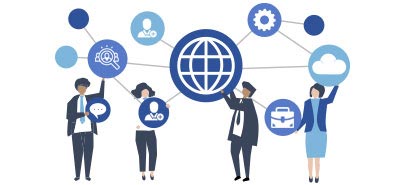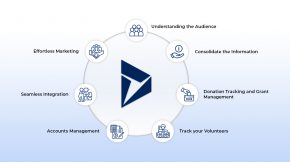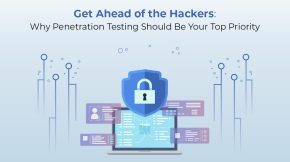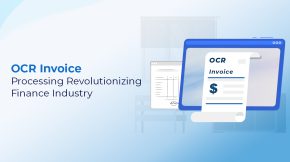Finding More Time for Patients with Microsoft Dynamics ERP for Healthcare
Picture this: A nurse devotes ten valuable minutes to a call with central supply instead of a patient because a particular wound care kit is missing. In billing, a specialist painstakingly transcribes data from a patient’s chart, an error-prone chore that holds up claims. Meanwhile, an administrator spends hours cross-referencing spreadsheets just to answer a simple question: are we over budget on medical supplies this month?
These aren’t IT problems; they are care problems. They steal time, energy, and focus from what truly matters: the people who need help. This is the daily reality that Microsoft Dynamics ERP for Healthcare is designed to change. It’s not about complex software; it’s about giving your staff their time back.
So, What Exactly is ERP in Healthcare industry?
If you’ve ever wondered, “what is ERP in healthcare?” you’re not alone. Think of it as the ultimate organizer for your entire operation. It’s the behind-the-scenes system that connects your team’s hard work—from the folks ordering gloves to the people processing insurance—into one smooth, coordinated effort.
For anyone in our field, a generic system creates more problems than it solves. You need a partner that speaks your language. That’s what Microsoft Dynamics ERP for Healthcare is built to do. It’s a specialized ERP for healthcare industry that understands your unique challenges, whether you’re running a busy clinic, a dedicated ERP for nursing homes, or a large hospital.
This kind of ERP software for healthcare industry acts as a single source of truth. It links your clinical and financial worlds, breaking down the walls that cause delays and misunderstandings. The right ERP solutions for healthcare make it easier for everyone to work together towards a common goal: outstanding patient care.
How a Healthcare ERP Makes Your Day Easier
- Less Paperwork, More Peoplework
Let’s be honest, administrative tasks can feel like a black hole for time. A great ERP for healthcare automates the tedious stuff. It helps manage inventory so a nurse doesn’t have to play detective to find supplies. It streamlines HR tasks like scheduling and payroll. For an ERP for nursing homes, this might mean effortlessly tracking resident meals and medications. This isn’t just about efficiency; it’s about freeing your staff from frustration so they can focus on meaningful work.
- Never Run Out of What You Need (Or Waste What You Have)
How many times has a critical item been on backorder? Effective Medical ERP Software gives you a real-time look at your inventory across every wing and closet. It can automatically re-order items before you run low, ensuring you have what you need without overstocking. This precision is vital for an ERP for Pharmaceutical Industry, where tracking a drug’s journey from shipment to patient is essential for safety and compliance.
- Clear, Accurate Bills that Patients Understand
The financial side of care is stressful for everyone. When your patient billing software is disconnected from medical records, mistakes happen. Claims get denied. Patients get confused. When billing systems are integrated with clinical systems in a unified ERP for healthcare, it ensures all data are consistent. This results in cleaner claims and quicker payments, which means the financial aspect is less taxing for those in your care. It’s the concept of caring for the entire patient, including their finances.
- Immediate Responses, Not Deep Search
In the current day, Microsoft Dynamics ERP for Healthcare provides healthcare management software the ability to transform data into useful information. It answers queries on the number of patients that can be admitted and whether the staff’s talents are being fully utilized. With these queries answered, leaders have the ability to make healthcare management decisions using management software that offers ERP solutions for healthcare with the aid of data visualization of analytics from clear dashboards that allow coping with real-time information as opposed to that from the previous week. With the data being answered, the management can make decisions quickly to improve care and the organization’s finances. This is modern ERP’s healthcare management software in action—it makes data actionable.
Effective Healthcare Industry ERP Workflow Automation
For ERP healthcare systems, an approver can establish procedures to be followed in the performance of simple tasks. For example, the system can issue purchase orders whenever supplies are depleted. When documents need approval, they’re routed to the right person automatically. These might sound like small changes, but together they create a significant shift: less time spent on administrative tasks, fewer errors, and more time for patient care. In an ERP for nursing homes, this might mean automated medication tracking or simplified resident billing.
The beauty of these ERP solutions for healthcare is that they adapt to your workflows, not the other way around. The system learns how you work and helps you work better.
When Your Business System and Medical Records Work Together
For most healthcare organizations, there’s a divide between clinical systems (where patient care happens) and business systems (where operations happen). When these systems can’t talk to each other, it creates extra work and potential for error.
The Power of EHR Integration
When your Microsoft Dynamics ERP for Healthcare connects with your electronic health records, magic happens. Patient information flows seamlessly between clinical and business systems, eliminating duplicate data entry and reducing errors. This integration means your billing team can understand the clinical context behind charges, leading to more accurate claims. It means administrators can see how operational decisions affect patient care outcomes. Most importantly, it means your staff spends less time moving information between systems and more time with patients.
This connection is particularly valuable in ERP for Pharmaceutical Industry applications, where drug tracing, batch monitoring, and compliance reporting require perfect alignment between business and clinical data.
Your New AI Assistant: Here to Help, Not Replace
Many people hear “AI” and think of technology that might replace human workers. But in Microsoft Dynamics ERP for Healthcare, AI functions more like a helpful assistant—there to make your job easier, not to take it over.
Microsoft Copilot: Your Guide to the Patient Data
Think about querying your data with natural language: ‘What are our most efficient divisions?’ or ‘What’s the root of the delay in patient billing?’ The AI comprehends the query and delivers the results.
What the AI brings to the table is the invaluable ability to identify healthcare trends you might overlook. For example, it could identify that certain materials predictably run out during a specific season, or that steps in a workflow are habitually slower. This foresight enables proactive management.
Reclaim Your Time and Focus on Patient Care
Stop wrestling with disconnected systems and start empowering your team. Let us show you how Microsoft Dynamics ERP for Healthcare can streamline your operations in a personalized demo designed just for your organization. Schedule a consultation call with our Healthcare ERP Experts at [email protected]


